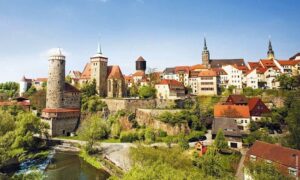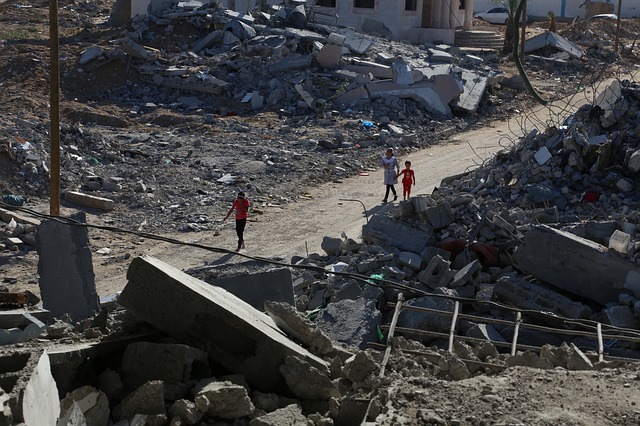Accelerated Economic Growth Anticipated for Kosovo in 2024
The World Bank: After slowing down in 2023, economic growth in the Western Balkans is expected to moderately accelerate in 2024 to reach three percent amid continued recovery in the European Union, the region’s main trade partner, and lower inflation that should help strengthen disposable income and support consumption, says the World Bank’s new Western Balkans Regular Economic Report, released today.
The regional growth rate in 2024, although faster than in 2023, may be 0.1 percent lower than anticipated by the World Bank in the previous edition of the report in April. The growth projection for 2025 was kept unchanged at 3.5 percent.
Table. Western Balkans Outlook, 2020-25
|
|
Percentage point
differences from April 2023 projections
|
|||||||||
| 2020 | 2021 | 2022 | 2023e | 2024f | 2025f | 2023e | 2024f | 2025f | ||
| Real GDP growth (percent) | ||||||||||
| Albania | -3.3 | 8.9 | 4.8 | 3.6 | 3.2 | 3.2 | 0.8 | -0.1 | -0.1 | |
| Bosnia and Herzegovina | -3.0 | 7.4 | 3.9 | 2.2 | 2.8 | 3.4 | -0.3 | -0.2 | -0.1 | |
| Kosovo | -5.3 | 10.7 | 5.2 | 3.2 | 3.9 | 4.0 | -0.5 | -0.5 | -0.2 | |
| North Macedonia | -4.7 | 3.9 | 2.1 | 1.8 | 2.5 | 2.9 | -0.6 | -0.2 | 0.0 | |
| Montenegro | -15.3 | 13.0 | 6.4 | 4.8 | 3.2 | 3.1 | 1.4 | 0.1 | 0.2 | |
| Serbia | -0.9 | 7.5 | 2.3 | 2.0 | 3.0 | 3.8 | -0.3 | 0.0 | 0.0 | |
| Western Balkans Six | -3.0 | 7.8 | 3.3 | 2.5 | 3.0 | 3.5 | -0.1 | -0.1 | 0.0 | |
The recovery and a return to pre-pandemic levels come with differences across countries. Growth in Montenegro and Albania was stronger than expected in 2023, driven, among other factors, by a strong tourism season, and may slightly decelerate in 2024. Growth in Serbia, North Macedonia, Bosnia and Herzegovina, and Kosovo is projected to speed up in 2024, supported by an increase in consumption and investment.
“Despite multiple shocks that hit the European economies, the Western Balkans have been able to grow, create new jobs, and reduce poverty to record low levels, a testament to the region’s strong economic fundamentals,” said Xiaoqing Yu, World Bank Country Director for the Western Balkans. “What is encouraging is that the Western Balkans continue to make progress in catching up with advanced economies of the European Union. However, convergence is moving at a different speed in various economies, which requires targeted reforms to consolidate the recovery toward sustainable growth”.
In Kosovo, as elsewhere in the Western Balkans, amidst challenging external conditions, real GDP growth decelerated but it remains positive. Economic activity is expected to expand by 3.2 percent during 2023. Inflation has been steadily decreasing from its peak of 14.2 percent in July 2022, but price pressures remain heightened. The medium-term outlook remains positive within a context of high uncertainty. The contribution of investment to growth is expected to pick up in 2024–2025, supported by increased investment in public infrastructure, including through the support of external financing, and higher public and private investments in energy supply and efficiency.
“For Kosovo, timely and effective implementation of the new energy strategy while safeguarding fiscal adequacy is imperative, alongside the need to reduce other infrastructure gaps in water, waste, and connectivity,” said Massimiliano Paolucci, World Bank Country Manager for Kosovo and North Macedonia. “Scaling up human capital investments and greater inclusion of inactive women into the labor market, by reducing barriers to participation, also by scaling up access to childcare services, are a precondition to unlock higher potential economic growth,” he added.
In 2023, the Western Balkans’ labor market continued to strengthen, against all odds. The average employment rate in the region reached a new historic high at almost 48 percent with additional 103,000 jobs created between mid-2022 and mid-2023. Albania, Bosnia and Herzegovina, and Montenegro showed the strongest gains. At the same time, labor shortages continue to be among the top concerns raised by businesses in the Western Balkans. Despite recent momentum in the post-pandemic years, labor force participation remains low and, coupled with significant gender gaps, is constraining further poverty reduction.
The region needs to not only address barriers to greater labor force participation but also accelerate economic convergence with more advanced economies of Europe, according to the report. These efforts need to be complemented with accelerated green transition and more investments to boost resilience to natural disasters, including in agriculture.
“Agriculture is one of the sectors most impacted by droughts, shortened seasons, and unpredictable weather patterns. Protecting agriculture against natural hazards and making it more sustainable could allow Western Balkan economies to continue rising agricultural productivity against the climate change’s headwinds and be able to sustainably produce more high-quality food for domestic purposes, but also for exports, including to the EU”, said Natasha Rovo, World Bank Senior Economist, and a lead author of the report. “This requires improving public policies and investments to enhance a wide adoption of climate-smart technologies and practices by farmers supported by stronger public institutions critical for sustainable agricultural growth.”.
While the size of the agriculture sector in the region is shrinking, it remains highly relevant, for example by employing from seven to 35 percent of the population across the six countries. Greening agriculture offers therefore an opportunity to boost productivity, competitiveness, and resilience of the sector, by making effective use of available funds, according to the report.




























